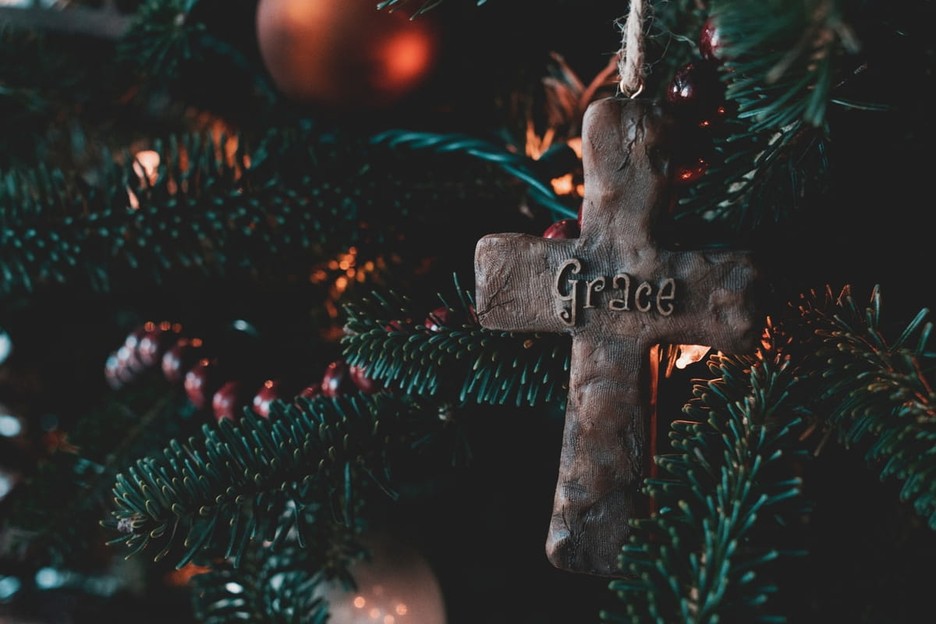
Christmas Eve 2024
Christmas Eve in 2024 will be on Tuesday, December 24th, preceding Christmas Day on Wednesday, December 25th.
Why is Christmas Eve on December 24th?
The specific date of December 25th has historical and religious significance. While the exact historical date of Jesus' birth is not known, December 25th was chosen by early Christian leaders to coincide with existing pagan festivals that were already celebrated around the winter solstice. By aligning the celebration of Jesus' birth with existing festivals, Christian leaders aimed to make Christianity more appealing to potential converts.
Over time, December 25th became widely accepted as the symbolic date for celebrating the birth of Jesus, and Christmas Eve, on December 24th, became the evening preceding the main celebration. Many cultures around the world observe Christmas Eve with various traditions, including special meals, church services, and the exchange of gifts.
The traditional date of December 25 goes back as far as A.D. 273. Two pagan festivals honoring the sun were also celebrated on that day, and it is possible that December 25 was chosen to counteract the influence of paganism. To this day, some people feel uncomfortable with Christmas because they think it is somehow tainted by the pagan festivals held on that day. But Christians have long believed that the gospel not only transcends culture, it also transforms it. In A.D. 320, one theologian answered this criticism by noting, “We hold this day holy, not like the pagans because of the birth of the sun, but because of him who made it.”
Having said that, you may ask, “Does it really matter?” In one sense, of course, the answer is no. No doctrine of the Christian faith rests upon knowing the exact day and year of Christ’s birth. And no stress is put upon his birth date in the New Testament. No one is ever told to celebrate Christmas. The emphasis always rests on the fact of his birth, not the date. But that doesn’t tell the whole story. Christianity is a faith based on certain historical facts. Let us, on this Christmas Eve, rejoice in this great truth:
“For unto you is born this day in the city of David a Savior, who is Christ the Lord" (Luke 2:11).
Rejoice in the birth of Christ with a 25 Days to a Joyful Christmas Prayer Guide! Download and print your free Devotional to help you focus your mind and heart on Jesus this holiday season.
Why Is It Called Christmas Eve? Origin and History
For centuries, Christmas was celebrated not as a single day but as a whole season in parts of the world, beginning with December 24, Christmas Eve. Perhaps the practice of celebrating the evening before the big day echoes ancient Jewish reckoning. Among earlier Jews, a day began at six in the evening and ran until six the following evening. Had not Moses written: "An evening and a morning were the first day"?
Christmas means "Christ-mass." Although the date is a guess, the tradition of observing it goes back to at least the fourth century. Under the church's influence, Christian traditions replaced pagan solstice festivals throughout Europe. Often, the more innocent pagan practices (such as bringing in a Yule log, decorating with holly, and the like) were carried over into the Christmas observance, transfigured with new meaning.
Christmas Eve Traditions
Christmas Eve (the evening before Christmas day) was then celebrated with roaring fires, story-telling, feasting, drinking, dancing, and sometimes clowning. Sir Walter Scott described its festive air in a poem:
On Christmas Eve, the bells were rung;
On Christmas Eve, the mass was sung.
...
The damsel donned her kirtle sheen,
the hall was dressed with holly green;
...
All hail'd with uncontroll'd delight,
And general voice the happy night
That to the cottage, as the crown,
Brought tidings of salvation down.
Christmas Eve Traditions From Around the World
There are many different Christmas Eve traditions that people celebrate around the world. Here are a few of our favorites:
Germany: Leaving a shoe out for Saint Nicholas
Sweden: Christmas Eve dinner with family and friends
Iceland: Leaving a plate of food out for the Yule Lads
Finland: Visiting cemeteries to light candles for loved ones
United States: Leaving cookies and milk out for Santa Claus
The History of Christmas Eve
Things weren't always so pleasant, however. On Christmas Eve, 1521, crowds rioted in Wittenberg, with the Reformation gaining steam in Germany. Against the orders of Elector Frederick, Andreas Carlstadt had given them both the bread and wine at mass. Zealous for more "reformation," the mob smashed church lamps, sang ridiculous songs to drown out the choir, and intimidated the priests.
Luther is supposed to have cut the first Christmas tree. The story may be apocryphal, but we know that on Christmas Eve, 1538, he was in a jolly mood, singing and talking about the incarnation. Then he sighed, saying, "Oh, we poor men, that we should be so cold and indifferent to this great joy which has been given us."
Despite Luther's lament, others would make warm memories on Christmas Eve. In his memoirs, Sir John Reresby told how he invited his poor tenants for a feast on Christmas Eve, 1682. During World War I, the famous Christmas Truce began for many troops on Christmas Eve, 1914, demonstrating the power for good that is inherent in the season.
Celebrating Christmas Eve
There are many ways to make Christmas Eve unforgettable. Here are a few ideas:
- Gather your loved ones around the Christmas tree and read Christmas stories.
- Sing Christmas carols and play Christmas music.
- Leave cookies and milk out for Santa Claus.
- Open one present on Christmas Eve.
- Attend a Christmas Eve service at your local church
Bibliography:
- Bainton, Roland H. Here I Stand; A Life of Martin Luther. New York: Mentor, 1962.
- Dawson, W. F. Christmas; its origin and associations. London: Elliot Stock, 1902.
- Hutchinson, Ruth and Adams, Ruth. Every Day's a Holiday. New York: Harper and Brothers, 1951.
- James, Francis G. and Hill, Miriam G. Joy to the World; two thousand years of Christmas. Portland, Oregon: Four Courts Press, 2000.
- Miles, Clement A. "Christmas Eve." http://www.abcog.org/xmas2.htm
- Various encyclopedias and internet articles.
(Article first published April 28, 2010 on Christianity.com)
For a look at an alternative date that some church fathers held for Jesus' birth, check out the article below on why Christmas Eve could have been in November.
Why Did Some Early Christians Celebrate Christmas Eve in November?
When was Jesus born in Bethlehem? The Bible tells us with certainty the fact of Jesus' birth and the place. But not the exact date. Although many Christians celebrate Christ's birthday on December 25th, it has not always been so. In fact, one of the early church fathers, Clement of Alexandria speculated that Christ was born on this day, November 17, 3 BC!
In the earliest church there seems to have been no celebration of Jesus' birth. Instead, each Sunday was a celebration of Christ's resurrection. The Jewish festivals of Passover and Pentecost continued to be celebrated by Jewish converts within the church for a time since they were closely associated with Christ's death and resurrection. In the third century, some churches in the east began to celebrate January 6 as the Epiphany, the time that Christ revealed himself to the people as the Messiah. Jesus' incarnation--when God became man--was also commemorated at this time.
Many speculated that since shepherds were in the field the night Christ was born, it must have been in spring or summer. Some said May 20; others fixed the date on April 19th or 20th. Still others thought March 25th most likely. No one really knew.
There is written evidence that by 354, the Bishop of Rome was observing December 25th as the date of Christ's birth. Four major Roman festivals were held in December, including Saturnalia which celebrated the returning Sun-god. Some thing these were adapted to the Christian celebration of the coming of the Son of God.
As Christianity expanded in Europe, the followers of Christ continued to celebrated December 25th as Christmas, and as each nationality converted to Christianity it brought its own customs to the celebration. But if Clement of Alexandria were still alive today he probably would be wishing us a "Merry Christmas" on this day.
"For the sake of each of us he laid down his life--worth no less than the universe. He demands of us in return our lives for the sake of each other."--Clement.
Bibliography:
- Adapted from an earlier Christian History Institute story.
- Bonsall, Elizabeth Hubbard. Famous Hymns with Stories and Pictures. Philadelphia: Union Press, 1923.
- Finnegan, Jack. Handbook of Biblical Chronology. Peabody, Massachusetts: Henrickson Publishers, 1998, 1964.
- Wells, Amos R. A Treasure of Hymns; Brief biographies of 120 leading hymn- writers and Their best hymns. Boston: W. A. Wilde company, 1945.
(Article first published on Christianity.com as "Clement's Date for Christ's Birth" on April 28, 2010)
This article is part of our larger Christmas and Advent resource library centered around the events leading up to the birth of Jesus Christ. We hope these articles help you understand the meaning and story behind important Christian holidays and dates and encourage you as you take time to reflect on all that God has done for us through His Son, Jesus Christ!
What Is Advent: Meaning, History, and Traditions
Advent Prayers for Friends, Family, and More
What Is an Advent Wreath and How to Use One?
The History of Santa Claus: Origin of St. Nicholas
Christmas Bible Verses & Scripture Story
What is Christmas? True Meaning and Holiday History
Christmas Eve History and Traditions
Why Gold, Frankincense, and Myrrh?
When Was Jesus Born? Why December 25th
Where Was Jesus Born?







